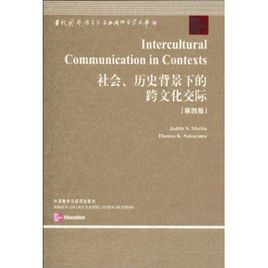內容簡介
本書作者客觀地審視了目前跨文化交際研究的眾多方法,在綜合和批判的基礎上,提出了一個新的研究視角一辯證法。作者首先強調應在社會、政治、歷史等大環境中研究和探索跨文化交際;其次,作者非常重視權勢與交際的關係,交際中的交往雙方地位“永遠不平等”的觀點,是本書兩位作者的獨特見解;再之,本書把研究重點放在美國國內不同亞文化或不同共存文化之間的交際方面,對讀者了解和認識美國不同群體文化的交際大有助益。
目錄
Preface
To the Student
PART I FOUNDATIONS OF INTERCULTURAL COMMUNICATION
Chapter 1 hy Study Intercultural Communication?
The Technological Imperative
Technology and Human Communication
Access to Communication Technology
ThedemographicImperative
Changing U.S. Demographics
Changing Immigration Patterns
The Economic Imperative
The Peace Imperative
The Self-Awareness Imperative
The Ethical Imperative
Relativity Versus Universality
Being Ethical Students of Culture
Discussion Questions
Activities
References
Chapter 2 The History of the Study of Intercultural Communication
The Early Development of the Discipline
Nonverbal Communication
Application of Theory
An Emphasis on International Settings
An Interdisciplinary Focus
Perception andworldviewof the Researcher Three Approaches to Studying Intercultural Communication
The Social Science Approach
The Interpretive Approach
The Critical Approach
AdialecticalApproach to Understanding Culture and Communication
Combining the Three Traditional Paradigms:The Dialectical Approach
Sixdialecticsof Intercultural Communication
Keeping a Dialectical Perspective
Discussion Questions
Activities
References
Chapter 3 Culture, Communication, Context, and Power
What Is Culture?
Social Science Definitions: Culture as Learned, Group-Related Perceptions
Interpretive Definitions: Culture as Contextual Symbolic Patterns of Meaning
……
PART II INTERCULTURAL COMMUNICATION PROCESSES
Credits

